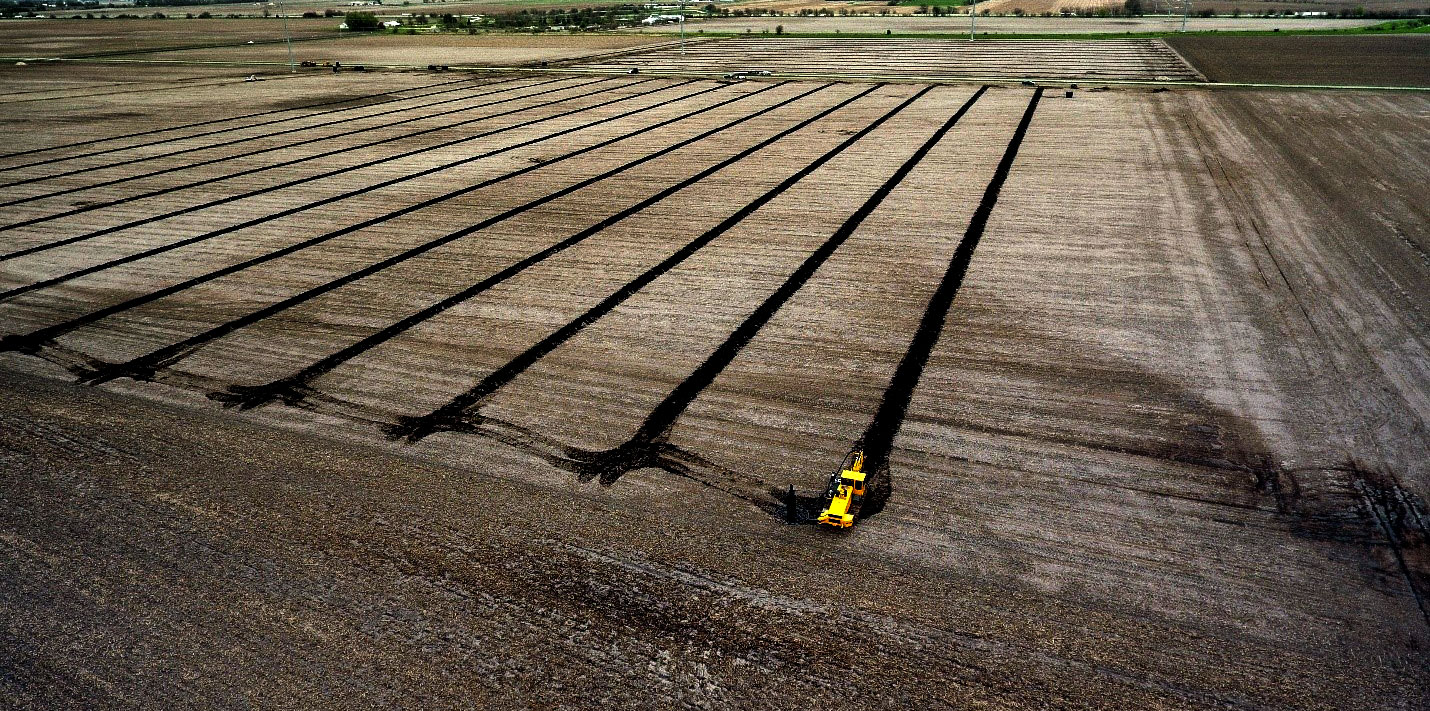A wet spring in the Midwest in 2019 has made drainage a focal point for many farmland owners. Water is vital to agricultural production. When a crop receives too little or too much of this resource, its productivity is negatively impacted. Water management solutions promote soil health and provide plants with optimal growing conditions. The most commonly engineered solutions for water management are surface drainage, subsurface drainage and irrigation. Every farm is unique and requires proper due diligence in determining which solution is most appropriate. Variables that should be considered are soil type, topography (or slope), type of crop, available outlet(s), watershed acres and water access. Budgetary concerns can drive decision making, but it’s prudent to prepare for the future. It is possible that a project can be done in stages — over many growing seasons and several budget cycles. The second-largest investment you will make on your farm – other than purchasing it – is improving it. A land improvement investment pays off for generations. Therefore, it is vital to protect this investment by having a third-party industry professional provide you with the data and information needed for making decisions.
When considering land improvements, a landowner should contemplate many factors. Soil identification and analysis are critical to engineering solutions. A specific soil’s particulate size and drainage coefficient will dictate what solutions are viable. Without proper soil analysis, the engineering process cannot be implemented correctly. The topography of the farm and its watershed are also important in understanding which options are attainable for the farm. Topographic data collection is not a difficult proposition, but it must be done precisely to gather the most accurate data in locations critical for the project.
Drainage history tells us that landowners traditionally targeted “wet spots” or “troublesome areas” for their improvements. This was commonly referred to as “random drainage.” Then the industry experienced a transition to “pattern” or “grid” tiling of an individual farm. This practice effectively managed the entire water table of an individual farm – or so we thought. The issue with that mindset is that soils absorb and shed moisture, and water takes the path of least resistance both on the surface and subsurface. So, although an individual farm may be “pattern” or “grid” tiled, the farm’s drainage solutions were engineered for that particular farm and not the watershed hydrology. As a farm owner, you should consider a watershed analysis that identifies how the neighbors’ water impacts your farm. That analysis allows for the most effective and efficient engineered solutions. What is more appropriate is a holistic watershed model that allows an entire watershed to manage water and manage costs. Mutual drainage solutions shared by neighboring properties promote cost savings and improved water management.
One factor often overlooked when implementing drainage solutions is a farm’s valuation. An appropriately executed water management system will result in an appreciation in value. This capital improvement, while increasing the value of the farm, will not have an impact on real estate taxes as other improvements do. Additionally, farms with water management systems tend to be more appealing to farm operators. These elements should be considered when making investment decisions.
 Corey Getz is the CEO of DIGS Associates. DIGS Associates offers objective advice, innovative solutions and long-term service. DIGS partners with industry leading professionals, facilitates sophisticated land improvement projects and serves as a longterm partner for land and water management solutions. The goal is to maximize capital improvement investments and provide the most equity to clients on every project.
Corey Getz is the CEO of DIGS Associates. DIGS Associates offers objective advice, innovative solutions and long-term service. DIGS partners with industry leading professionals, facilitates sophisticated land improvement projects and serves as a longterm partner for land and water management solutions. The goal is to maximize capital improvement investments and provide the most equity to clients on every project.
For more information or answers to questions on water resources, contact DIGS Associates at 217-768-4930 or sales@digsassociates.com Follow DIGS Associates on Twitter at @DIGSAssociates or visit their website: https://digsassociates.com/

